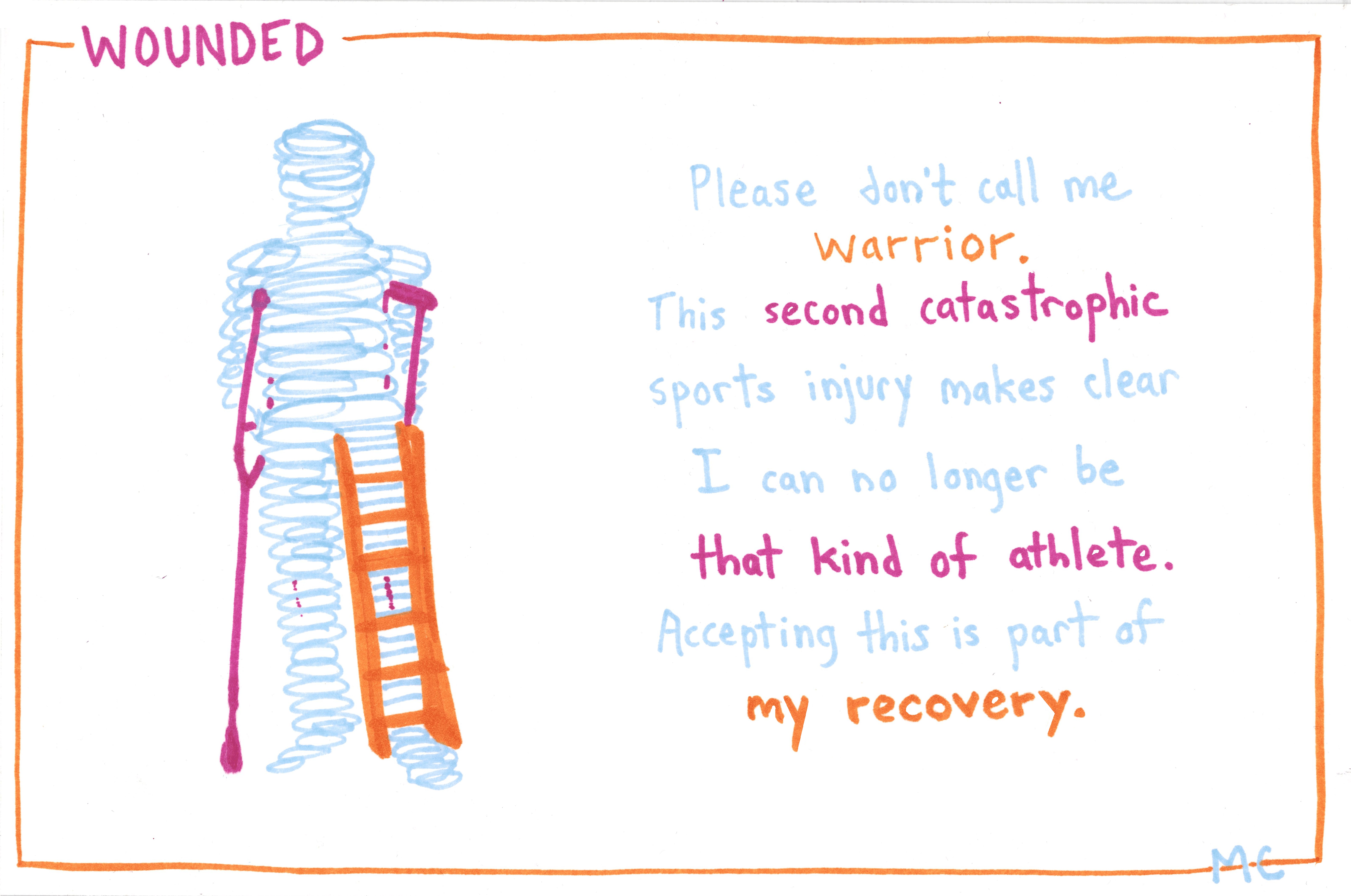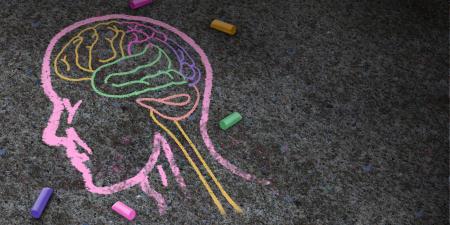Abstract
In American culture, blood, sweat, and tears mantras of sports remind athletes that they are expected to perform past their breaking point. This comic considers this expectation narratively and visually.
Figure. Wounded

Media
Marker on paper, 9" x 6".
In American culture, a norm to perform to a breaking point seems to inform our lives as if we live a series of game-time decisions in which we are pressed to ignore tweaks or twists and “play through pain.” When sports provide identity, an injured athlete can experience emotional upheaval. Wounded probes how war-based language reifies normative expectations that are unhealthy and asks readers to consider an alternative support-based vocabulary. Too many teammates reenter the (battle) field too soon after injury, only to collapse, wounded, again.
Indeed, as a varsity volleyball player at university, one of my coach’s favorite shouts when players were diving for a ball was to “sacrifice your body!” I was obedient to a fault: I watched a season from the sidelines, propped up by crutches after tearing my anterior cruciate ligament and meniscus. When my good, remaining knee collapsed a couple of years later, I knew what lay ahead: depression, crutches, weakness, frustration. I knew I could not return to high-intensity sports with the same expectations.
Wounded speaks to the presence of warrior culture within American sports. Players are prepared and expected to play until injuries utterly debilitate them. When athletes are sidelined by injuries, teammates and fans provide support by envisioning games that lie ahead. The injured person receives comfort by identifying herself as a wounded warrior, destined to reenter the (battle) field. But many athletes, at some time, must abstain from demands and pleasures of play to stay physically intact. Life itself requires us to grow to respect our limitations, especially as we age, and to cultivate empathy for ourselves and others. Confrontation with our limitations is, perhaps, a universal human experience.
To stay emotionally intact throughout upheaval of injury and recovery, a young athlete does better, perhaps, to embrace this reality: she is not meant to sacrifice her body to sport. She need not be a warrior, and she can find vibrancy in different, more nourishing physical exercise.
Wounded probes language, asking companions and caregivers to consider meanings of “support” as an athlete retools her relationship with athletics following injury. Perhaps a good coach, too, would do well to carefully consider that we can joyfully push each other to excel without doing harm and while learning to cultivate compassionate respect for our limitations. If advice issued by a coach has capacity to incur harm, coaches must consider the power of their language and its possible reception by those committed to striving to acquire—but not yet practiced in—the life skill of recognizing their limitations.



